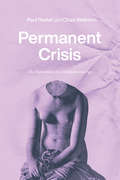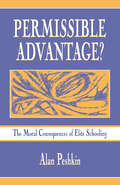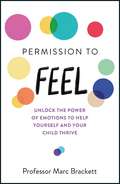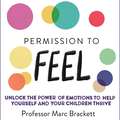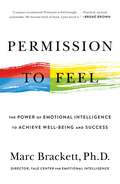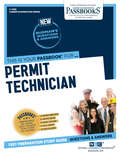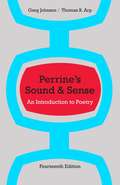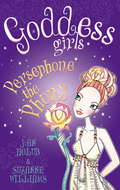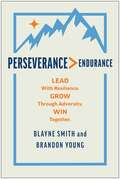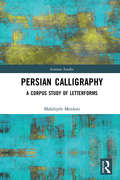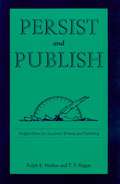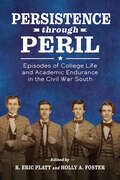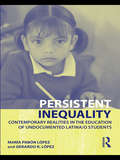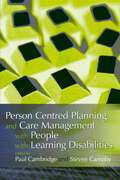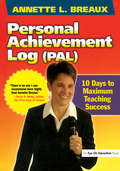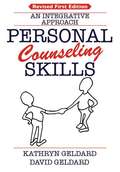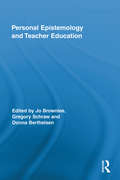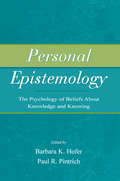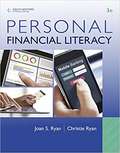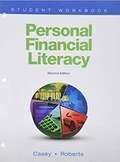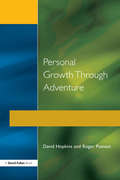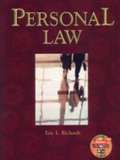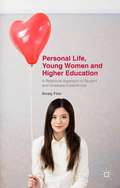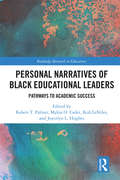- Table View
- List View
Permanent Crisis: The Humanities in a Disenchanted Age (Studies in the History of the University)
by Paul Reitter Chad WellmonLeads scholars and anyone who cares about the humanities into more effectively analyzing the fate of the humanities and digging into the very idea of the humanities as a way to find meaning and coherence in the world. The humanities, considered by many as irrelevant for modern careers and hopelessly devoid of funding, seem to be in a perpetual state of crisis, at the mercy of modernizing and technological forces that are driving universities towards academic pursuits that pull in grant money and direct students to lucrative careers. But as Paul Reitter and Chad Wellmon show, this crisis isn’t new—in fact, it’s as old as the humanities themselves. Today’s humanities scholars experience and react to basic pressures in ways that are strikingly similar to their nineteenth-century German counterparts. The humanities came into their own as scholars framed their work as a unique resource for resolving crises of meaning and value that threatened other cultural or social goods. The self-understanding of the modern humanities didn’t merely take shape in response to a perceived crisis; it also made crisis a core part of its project. Through this critical, historical perspective, Permanent Crisis can take scholars and anyone who cares about the humanities beyond the usual scolding, exhorting, and hand-wringing into clearer, more effective thinking about the fate of the humanities. Building on ideas from Max Weber and Friedrich Nietzsche to Helen Small and Danielle Allen, Reitter and Wellmon dig into the very idea of the humanities as a way to find meaning and coherence in the world. ,
Permissible Advantage?: The Moral Consequences of Elite Schooling (Sociocultural, Political, and Historical Studies in Education)
by Alan PeshkinThis study of Edgewood Academy--a private, elite college preparatory high school--examines what moral choices look like when they are made by the participants in an exceptionally wealthy school, and what the very existence of a privileged school indicates about American society. It extends Peshkin's ongoing exploration of U.S. high schools and their communities, each focused in a different sociocultural setting. In this particular inquiry, he began with two central questions: * What is a school like whose students enter with a determined disposition to attend college, and all of whom are selected on the promise they display for college success? * What can be learned from studying Edgewood Academy that transcends the particular case of this school? The volume opens with a description of how moral choices look when they are made by the participants in an exceedingly wealthy school. There is a general picture of the Academy, a discussion of the processes the school uses to insure the quality of its students and educators, and an overview of teachers and students that reveals what is commendable about each group. These chapters clarify what a school of ample financial means and wise leadership can do. Peshkin goes on to reflect briefly on privilege and concludes with a discussion of what the very existence of a privileged school indicates about American society. Schools, he suggests, are about much more than what goes on inside them--they mirror what is and is not at stake for their particular constituents--and function similarly for the nation. Edgewood Academy's host community is not a village, town, church, or tribe, as in Peshkin's previous studies. It is a community created by shared aspirations for high-level academic attainment and its associated benefits. Affluence and towering academic achievement are the two most relevant factors. In this book, advantage occupies center stage. The school's excellence is documented not to extol its success, but, rather, to call attention to what is available for its students that is not available for most American children. The focus, ultimately, is on educational justice as illuminated by the advantage of Academy students--that is, on justice denied, not because anyone or any group or agency consciously, planfully sets out to do injustice to other children, but because injustice happens as the artifact of imagined limitations of resources and means. Peshkin's purpose is not to detail the particulars of how educational justice is denied to the many, but to portray and examine the meaning of a privileged school where educational justice prevails for the few.
Permission to Feel: Unlock the power of emotions to help yourself and your children thrive
by Marc BrackettA practical and transformative 5-step strategy to ensure the emotional wellbeing of yourself and your childThe mental wellbeing of children and adults is shockingly poor. Marc Brackett, author of Permission to Feel, knows why and what we can do. Marc Brackett is a professor in Yale University's Child Study Center and in his 25 years as an emotion scientist, he has developed a remarkably effective plan to improve the lives of children and adults - a blueprint for understanding our emotions and using them wisely so that they help, rather than hinder, our success and well-being. The core of his approach is a legacy from his childhood, from an astute uncle who gave him permission to feel. He was the first adult who managed to see Marc, listen to him, and recognise the suffering, bullying, and abuse he'd endured. In the decades since, Marc has led large research teams and raised tens of millions of dollars to investigate the roots of emotional wellbeing. His prescription for healthy children (and their parents, teachers, and schools) is a system called RULER, a high-impact and effective approach to understanding and mastering emotions that has already transformed the thousands of schools that have adopted it. RULER has been proven to reduce stress and burnout, improve school climate, and enhance academic achievement. This book is his way to share the strategies and skills with readers around the world. It is tested, and it works.
Permission to Feel: Unlock the power of emotions to help yourself and your children thrive
by Marc BrackettA practical and transformative 5-step strategy to ensure the emotional wellbeing of yourself and your childThe mental wellbeing of children and adults is shockingly poor. Marc Brackett, author of Permission to Feel, knows why and what we can do. Marc Brackett is a professor in Yale University's Child Study Center and in his 25 years as an emotion scientist, he has developed a remarkably effective plan to improve the lives of children and adults - a blueprint for understanding our emotions and using them wisely so that they help, rather than hinder, our success and well-being. The core of his approach is a legacy from his childhood, from an astute uncle who gave him permission to feel. He was the first adult who managed to see Marc, listen to him, and recognise the suffering, bullying, and abuse he'd endured. In the decades since, Marc has led large research teams and raised tens of millions of dollars to investigate the roots of emotional wellbeing. His prescription for healthy children (and their parents, teachers, and schools) is a system called RULER, a high-impact and effective approach to understanding and mastering emotions that has already transformed the thousands of schools that have adopted it. RULER has been proven to reduce stress and burnout, improve school climate, and enhance academic achievement. This book is his way to share the strategies and skills with readers around the world. It is tested, and it works.(P)2019 Macmillan Audio
Permission to Feel: Unlocking the Power of Emotions to Help Our Kids, Ourselves, and Our Society Thrive
by Marc BrackettThe mental well-being of children and adults is shockingly poor. Marc Brackett, author of Permission to Feel, knows why. And he knows what we can do. "We have a crisis on our hands, and its victims are our children."Marc Brackett is a professor in Yale University’s Child Study Center and founding director of the Yale Center for Emotional Intelligence. In his 25 years as an emotion scientist, he has developed a remarkably effective plan to improve the lives of children and adults – a blueprint for understanding our emotions and using them wisely so that they help, rather than hinder, our success and well-being. The core of his approach is a legacy from his childhood, from an astute uncle who gave him permission to feel. He was the first adult who managed to see Marc, listen to him, and recognize the suffering, bullying, and abuse he’d endured. And that was the beginning of Marc’s awareness that what he was going through was temporary. He wasn’t alone, he wasn’t stuck on a timeline, and he wasn’t “wrong” to feel scared, isolated, and angry. Now, best of all, he could do something about it.In the decades since, Marc has led large research teams and raised tens of millions of dollars to investigate the roots of emotional well-being. His prescription for healthy children (and their parents, teachers, and schools) is a system called RULER, a high-impact and fast-effect approach to understanding and mastering emotions that has already transformed the thousands of schools that have adopted it. RULER has been proven to reduce stress and burnout, improve school climate, and enhance academic achievement. This book is the culmination of Marc’s development of RULER and his way to share the strategies and skills with readers around the world. It is tested, and it works.This book combines rigor, science, passion and inspiration in equal parts. Too many children and adults are suffering; they are ashamed of their feelings and emotionally unskilled, but they don’t have to be. Marc Brackett’s life mission is to reverse this course, and this book can show you how.
Permit Technician: Passbooks Study Guide (Career Examination Series)
by National Learning CorporationThe Permit Technician Passbook® prepares you for your test by allowing you to take practice exams in the subjects you need to study. It provides hundreds of questions and answers in the areas that will likely be covered on your upcoming exam.
Perrine's Sound And Sense (Fourteenth Edition): An Introduction to Poetry
by Greg Johnson Thomas R. ArpIn preparing this fourteenth edition of Perrine's Sound and Sense, I have striven to be true to the principles established by Laurence Perrine more than fifty years ago while acknowledging the evolving nature of poetry. I have been guided not only by my own experience but also by the rich legacy of Thomas R. Arp, who joined Perrine in 1979, and by the helpful suggestions of many teachers who have contributed the results of their classroom experience.
Persephone the Phony: Book 2 (Goddess Girls #2)
by Joan Holub Suzanne WilliamsAs Persephone's mum encourages her to do, she often "goes along to get along" instead of doing what she really wants. But when she meets Mount Olympus Academy bad-boy Hades, she finally feels she has found someone with whom she can be herself. He's the first person who actually listens to her, and she finds herself liking him, despite the fact that the other goddess girls think he's bad news. But if he makes her feel so special - and she's so comfortable hanging around him - can he really be all that bad?Authors Joan Holub and Suzanne Williams put a modern spin on classic myths with the Goddess Girls series. Follow the ins and outs of divine social life at Mount Olympus Academy, where the most privileged godboys and goddessgirls in the Greek pantheon hone their mythical skills.
Perseverance > Endurance: Lead with Resilience. Grow Through Adversity. Win Together.
by Blayne Smith Brandon YoungFrom the battlefields of Afghanistan and Iraq to the boardrooms of Nike, Walmart, and Microsoft, Blayne Smith and Brandon Young have consistently built tightly-knit, high-performing teams that persevere and win. Join the Army Rangers on the peaks of the Hindu Kush Mountains in Afghanistan and the Green Berets at Firebase Anaconda to gain key insights for leading teams through uncertainty and the understanding that perseverance is what&’s most required for today&’s complex world. Doubt crushes leaders daily—from GMs of Fortune 500 companies to small business owners across America, leaders nearly unanimously express doubt and fear in the face of adversity. This makes sense because adversity pushes us beyond our training and our comfort zones. We cannot simply put our heads down and endure. Instead, learn that adversity is an opportunity for transformation. When faced with circumstances beyond our capabilities, we must grow to meet those challenges by persevering and becoming the person the situation requires. Perseverance > Endurance empowers leaders to gain clarity of their challenges, apply sound leadership principles, and lead their teams to victory by embracing the five factors of perseverance: Change: Factors outside of our control change fast and often. Uncertainty: We are confronted with situations beyond our training or capabilities, creating a sense of fear. Acceptance: Accept the consequences, embrace the reality of the situation, and surrender what we cannot control. Choice: Choose to become our creeds, values, and ethos and become the person your team and the situation call for. Growth: We will be changed on the other side, becoming better, wiser, and more confident leaders ready for the next big challenge. Discover a framework that has helped real organizations, including ThermoFisher Scientific, Siemens, GEICO, Ziggi's Coffee, SDA Colorado, Frontline Construction, Public Trust Advisors, and many more, learn to lead through adversity and win. From two US Army Special Operators turned business professionals who have built successful businesses and led teams to persevere and achieve no-fail missions in war, business, and life, this book will become a staple for leaders worldwide.
Persian Calligraphy: A Corpus Study of Letterforms (Iranian Studies)
by Mahdiyeh MeidaniThis book is an exploratory adventure to defamiliarize calligraphy, especially Persian Nastaliq calligraphic letterforms, and to look beyond the tradition that has always considered calligraphy as pursuant to and subordinate to linguistic practices. Calligraphy can be considered a visual communicative system with different means of meaning-making or as a medium through which meaning is made and expression is conveyed via a complex grammar. This study looks at calligraphy as a systematic means in the field of visual communication, rather than as a one-dimensional and ad hoc means of providing visual beauty and aesthetic enjoyment. Revolving around different insights of multimodal social semiotics, the volume relies on the findings of a corpus study of Persian Nastaliq calligraphy. The research emphasizes the way in which letterforms, regardless of conventions in language, are applied as graphically meaningful forms that convey individual distinct meanings. This volume on Persian Nastaliq calligraphy will be inspirational to visual artists, designers, calligraphers, writers, linguists, and visual communicators. With an introduction to social semiotics, this work will be of interest to students and scholars interested in visual arts, media and communication, and semiotics.
Persist and Publish: Helpful Hints for Academic Writing and Publishing
by T. F. Riggar Ralph E. MatkinA clear, concise explanation of the requirements for successful academic writing in any field. Includes a particularly useful annotated bibliography.
Persistence through Peril: Episodes of College Life and Academic Endurance in the Civil War South
by R. Eric Platt and Holly A. FosterContributions by Christian K. Anderson, Marcia Bennett, Lauren Yarnell Bradshaw, Holly A. Foster, Tiffany Greer, Don Holmes, Donavan L. Johnson, Lauren Lassabe, Sarah Mangrum, R. Eric Platt, Courtney L. Robinson, David E. Taylor, Zachary A. Turner, Michael M. Wallace, and Rhonda Kemp WebbTo date, most texts regarding higher education in the Civil War South focus on the widespread closure of academies. In contrast, Persistence through Peril: Episodes of College Life and Academic Endurance in the Civil War South brings to life several case histories of Southern colleges and universities that persisted through the perilous war years. Contributors tell these stories via the lived experiences of students, community members, professors, and administrators as they strove to keep their institutions going. Despite the large-scale cessation of many Southern academies due to student military enlistment, resource depletion, and campus destruction, some institutions remained open for the majority or entirety of the war. These institutions—"The Citadel" South Carolina Military Academy, Mercer University, Mississippi College, the University of North Carolina, Spring Hill College, Trinity College of Duke University, Tuskegee Female College, the University of Virginia, the Virginia Military Institute, Wesleyan Female College, and Wofford College—continued to operate despite low student numbers, encumbered resources, and faculty ranks stripped bare by conscription or voluntary enlistment. This volume considers academic and organizational perseverance via chapter “episodes” that highlight the daily operations, struggles, and successes of select Southern institutions. Through detailed archival research, the essays illustrate how some Southern colleges and universities endured the deadliest internal conflict in US history.
Persistent Inequality: Contemporary Realities in the Education of Undocumented Latina/o Students
by Maria Pabon Lopez Gerardo R. LopezThe children of undocumented migrants in the U.S. are trapped at the intersection of two systems in crisis: the public education system and the immigration law system. Based on a long tradition of scholarship in Latino education and on newer critical race theory ideas, Persistent Inequality answers burning questions about how educational policy has to rise to meet the unique challenges of undocumented students’ lives as well as those which face nearly all Latinos in the U.S. educational system. How solid is the Supreme Court precedent, Plyler v. Doe, that allows undocumented children the opportunity to attend public school K-12 free of charge? What would happen if the Supreme Court overruled it? What is the DREAM Act and how would this proposed federal law affect the lives of undocumented students? How have immigration raids affected public school children and school administrators? To shed some light on these vital questions, the authors provide a critical analysis of the various legal and policy aspects of the U.S. educational system, asserting that both the legal and educational systems in this country need to address the living and working conditions of undocumented Latino students and remove the obstacles to educational achievement which these students struggle with daily.
Persistent Modelling: Extending the Role of Architectural Representation
by Phil AyresWith contributions from some of the world’s most advanced thinkers on this subject, this book is essential reading for anyone looking at new ways of thinking about the digital within architecture. It speculates upon implications of Persistent Modelling for architectural practice, reconsidering the relationship between architectural representation and architectural artefact particularly in the fields of responsive and adaptive architectures.
Person Centred Planning and Care Management with People with Learning Disabilities
by Jim Mansell Robina Shah Paul Cambridge Steven Carnaby'This excellent, informative and well presented, a book provides the reader with fourteen edited chapters covering an area of policy and practice that is quite specific but will inform anyone interested in the development of a service user participation ethos in adult social care. It is a book that is relevant to managers and practitioners, both as students and qualified professionals, as well as academics. Care management is now well established in the everyday practice of predominantly statutory organisations. This book revisits the principles of this method of assessing and planning the care needs of adult service users, and introduces Person Centred Planning (PCP) as a suitable method for ensuring that much of the empowerment rhetoric care management is actually realised.' - British Journal of Social Work 'Part of the attraction of this book is its strong practice component. This is applicable to the different professionals working with people with learning disabilities, in whatever their service configuration. For students, the book will also provide a good introduction to the impact of person centred planning and its connections to a long history of similar initiatives.' - Journal of Interprofessional Care 'This book is a stimulating and challenging read of those working in service development generally, as well as learning disability services. There is a potential broad care management readership that might also find this relevant and interesting.' - Journal of Interprofessional Care 'This is an important book. It brings together chapters by many of the foremost researchers and practitioners in person centred planning. The book contains many ideas for taking the PCP process to a higher level of sophistication to really underpin the future development of appropriate and effective services.' - Community Living 'This book will help social workers to reconnect with the core values of their profession and to challenge institutionalised policies and practices. It has proven to be a valuable teaching resource and whilst its focus is on people with learning disabilities, the principles of PCP that it raises are relevant to any service user group and social work arena. Highly recommended.' - Professional Social Work 'There are many important issues facing the care management system today in the light of person-centred planning and approaches, and you would be hard-pressed to find a better collection of insightful and radical thinkers in this area than those featured here. It asks hard questions, and challenges the professional to adopt more inclusive and accessible work practices. Wherever you work in the field of learning difficulties you should read this book carefully and aim to put "person-centeredness" at the core of your practice.' - Community Care 'You would be hard-pressed to find a better collection of insightful and radical thinkers in the area of care management. Wherever you work in the field of learning difficulties you should read this book carefully and seek to put "person centredness" at the core of your practice. The challenge for professionals, is making it a reality for individuals.' - Community Care This timely book provides a reflective analysis of person centred planning for people with learning disabilities, complementing policy initiatives that focus on individualised planning and service user involvement. Drawing on practical experience and research findings, the contributors explore policy and practice issues, including: * advocacy and empowerment * risk management and adult protection * inter-agency and inter-professional working * ethnicity and culture * de-institutionalisation. Vivid case studies illustrate best practice in person centred planning, and the authors offer a rich variety of ideas for increasing the participation, self-esteem and quality of life of people with learning disabilities. This practical and accessible text is an invaluable guide for policy makers, carers and social work managers, academics and students.
Personal Achievement Log (PAL): 10 Days of Maximum Teaching Success
by Annette BreauxFirst published in 2005. Routledge is an imprint of Taylor & Francis, an informa company.
Personal Counseling Skills: An Integrative Approach
by Kathryn Geldard David GeldardThis book is a comprehensive, easy-to-read introduction to personal counseling written for professional and volunteer counselors and those who train them. It is also a valuable resource for workers in a wide variety of helping professions where counseling skills are useful such as in psychology, social work, welfare work, medicine, nursing, education, and human services.
Personal Epistemology and Teacher Education (Routledge Research in Education)
by Jo Brownlee Gregory Schraw Donna BerthelsenPersonal Epistemology and Teacher Education, edited by Joanne Brownlee, Gregg Schraw and Donna Berthelsen, provides an international perspective on teachers’ personal epistemology, or beliefs about the nature of knowledge and knowing. Research from The Netherlands, Cyprus, Australia, United States, Canada, Norway, and Taiwan is presented to provide diverse viewpoints on personal epistemology for early childhood, primary, secondary and tertiary teaching contexts. The text provides a platform for cutting-edge theory and research about how personal epistemology can be applied to the context of teacher education, thereby making explicit the connection between personal epistemology and teaching and students’ learning outcomes. Topics include: Cultural differences in teacher epistemology and the impact on students’ learning Teachers’ epistemological beliefs and inclusion Teachers’ epistemology and reading lessons, citizenship education, and teaching science Epistemology in a social context Teachers’ epistemological beliefs and student autonomy Teacher education and analysis of preservice and practicing teachers Implications of teachers’ epistemological beliefs Connections to future practice Teacher education and teacher behaviours are fore-grounded across the topics, with an emphasis on the origin and composition of teachers’ epistemological beliefs and how universities motivate change through formal teacher education. Teaching behaviours are discussed in relation to how teachers’ beliefs are related to the curricular and pedagogical choices that they make in their classrooms, assessment of learning outcomes, and classroom management practices.
Personal Epistemology: The Psychology of Beliefs About Knowledge and Knowing
by Barbara K. Hofer Paul R. PintrichThis is the first book to provide a comprehensive overview of the theoretical and methodological approaches to the study of personal epistemology from a psychological and educational perspective. Both theory building and empirical research have grown dramatically in the past decade but, until now, this work has not been pulled together in a single volume. That is the mission of this volume whose state-of-the-art theory and research are likely to define the field for the next 20 years. Key features of this important new book include: *Pioneering Contributors--The book provides current perspectives of each of the major theoreticians and researchers who pioneered this growing field, as well as contributions from new researchers. *Diverse Perspectives--The contributors represent a variety of perspectives, including education, educational psychology, developmental psychology, higher education, and science and mathematics education. *Editorial Integration--Opening and closing chapters by the editors set out key issues confronting the field.
Personal Financial Literacy (Financial Literacy Promotion Project Ser.)
by Joan Ryan Christie RyanNIMAC-sourced textbook <P><P>PERSONAL FINANCIAL LITERACY, Third Edition, covers the most current and relevant financial topics that impact today’s students, including budgeting, identity theft, saving, investing, risk management, and careful use of credit. This text teaches students how to plan and manage their personal finances; how to live a financially successful life; and what their financial responsibilities are as citizens. It is aligned with the Jump$tart Coalition's National Standards for Personal Financial Literacy. The personal focus of this course makes it relevant and meaningful to those just starting down the path to personal financial independence.
Personal Financial Literacy Workbook for Personal Financial Literacy: Student Workbook
by Michael Casey Sherry Roberts Jeffry MaduraPersonal Financial Literacy Student Workbook Second Edition
Personal Growth Through Adventure
by David Hopkins Roger PutnamFirst Published in 1994. Routledge is an imprint of Taylor & Francis, an informa company.
Personal Law
by Eric L. RichardsInformative overview of personal law issues that are of practical importance in our lives.
Personal Life, Young Women and Higher Education
by Kirsty FinnOver the past decade the number of students entering higher education has risen dramatically and the 'university experience' has become an increasing influence in the lives of young people. Personal Life, Young Women and Higher Education: A Relational Approach to Student and Graduate Experiences provides an innovative and holistic view of young women's personal relationships and intimate connections during the transition in and through higher education in the UK during the first quarter ofthe 21st Century. It draws on rich, descriptive accounts of choice and change generated through a seven-year qualitative longitudinal study, to explore the emotional and moral significance of relationships with family, friends, romantic and sexual partners, housemates and peers for experiences of transition. Walking alongside a group of young women as they enter and later exit university, the book offers unique insights into the ways in which the massification of UK higher education takes shapein the unfolding of time for this group of students and graduates. The book develops a relational perspective which brings personal relationship and networks of intimacy into the foreground of analysis. In doing so, the discussion challenges the false distinction between public and private concerns to reveal the many and varied ways that higher education and personal life are intertwined for young women in the UK.
Personal Narratives of Black Educational Leaders: Pathways to Academic Success (Routledge Research in Education #39)
by Robert T. Palmer Mykia O. Cadet Kofi LeNiles Joycelyn L. HughesChallenging misconceptions related to Black academic achievement, this volume provides original perspectives on the policies, initiatives, and factors that facilitate the success of students of color as they progress along the educational pipeline. Grounded in an anti-deficit framework, this book offers personal narratives of Black educational leaders and professionals who discuss aspects of their educational experiences and pathways to success. With takeaways for research and practice, the individual narratives that comprise this book add to the conversation and advance important lessons gained from personal stories about achieving success for Blacks and other minority students.
